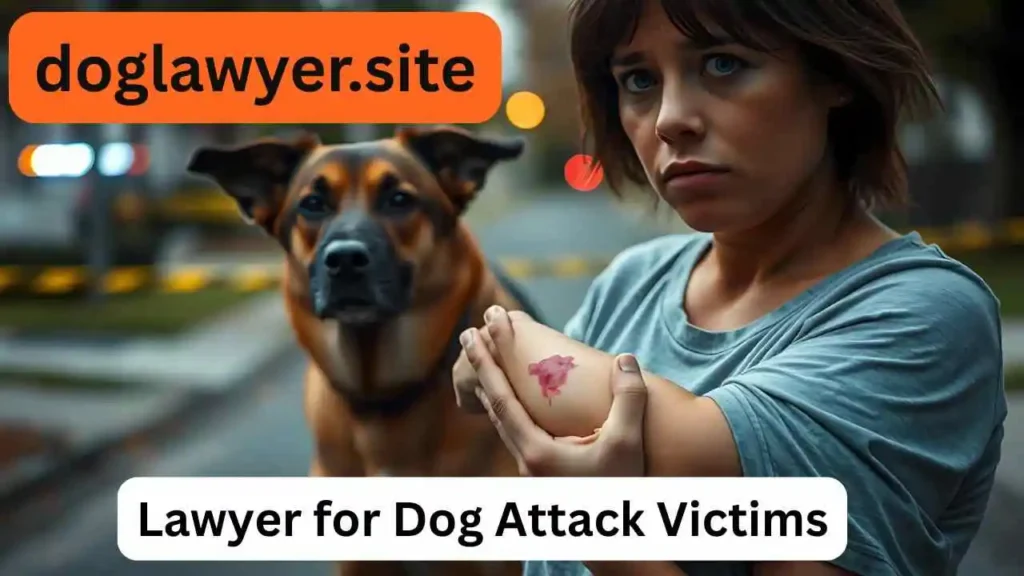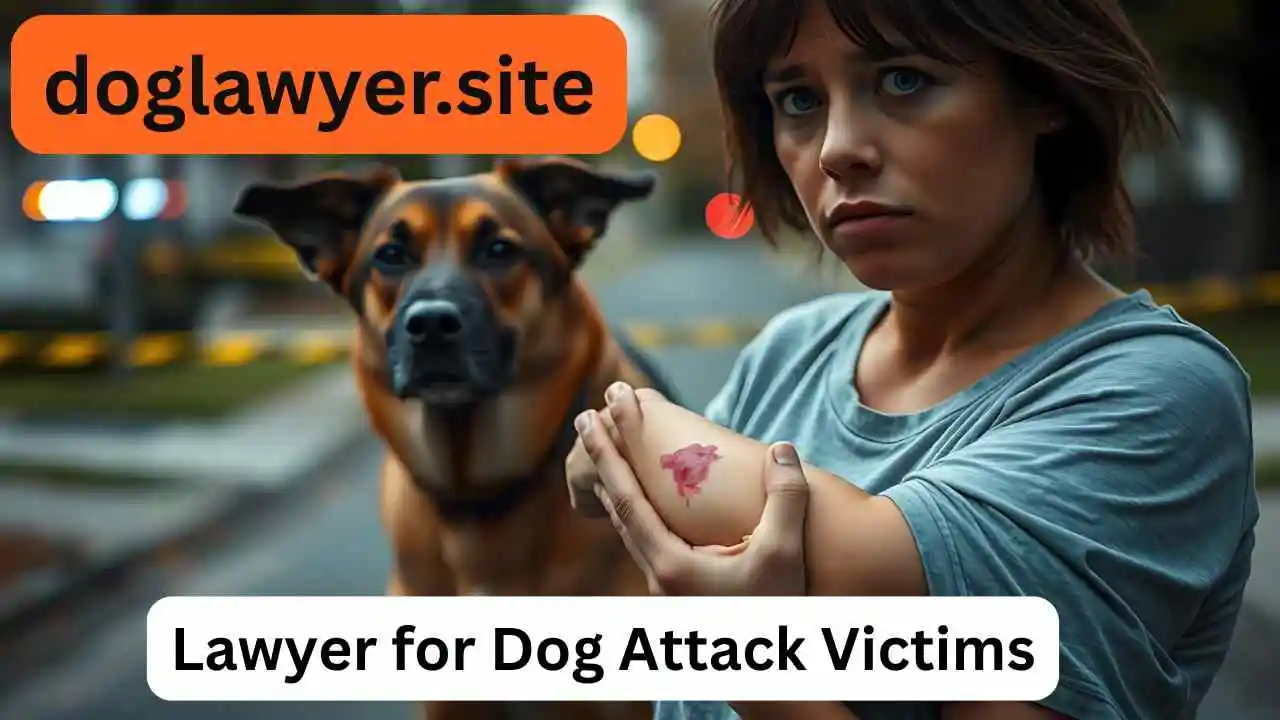Dog bites aren’t just physically painful—they come with a tangle of emotions, legal confusion, and unexpected consequences. If you’ve been attacked or know someone who has, you probably already know this isn’t something you just “walk off.” It sticks with you.
Whether it’s a minor nip or something more severe, dog attacks can leave lasting scars—literally and emotionally. This guide breaks things down into manageable steps. Not legal jargon or scary court talk—just what you need to know and do, one move at a time.
Table of Contents
Lawyer for Dog Attack Victims – 7 Powerful Steps Guide
Understanding the Basics of Dog Attack Cases
Why Dog Attacks Are Treated Seriously by the Law
There’s a reason dog bite laws exist. Even the friendliest-looking pet can act unpredictably. The law steps in to protect people and ensure that dog owners take responsibility for their pets’ behavior.
Types of Injuries Victims Commonly Face
Dog bites range from superficial scratches to deep wounds needing surgery. Nerve damage, infections, and even broken bones—yep, all possible. Kids and elderly people? They’re especially vulnerable.
Emotional and Psychological Trauma
It’s not all about stitches. Victims may experience anxiety, nightmares, and dog phobia. Some develop PTSD, especially children. Compared to physical wounds, emotional wounds may take longer to heal.

Dog owners’ legal obligations
Strict Liability vs. Negligence
In some states, owners are liable no matter what (strict liability). In others, you need to prove they were careless (negligence). Subtle difference—but legally, it changes everything.
Leash Laws and Local Regulations
Did the dog escape from an unfenced yard? Was it off-leash in a leash-only area? Local laws matter a lot in these cases. What’s legal in one city might be a violation in another.
Step 1 – Prioritize Medical Attention Immediately
You’re bleeding. You’re shaking. Maybe confused. First things first—get help.
Documenting Injuries
Ask for a copy of every medical record, photo, scan—everything. Even if you think “eh, it’s not that bad,” that paper trail is gold in a courtroom.
Why Early Medical Care Helps Your Legal Case
Quick treatment not only protects your health—it proves the injury was serious. Delays can raise eyebrows. A judge might wonder if the wound was from something else.
Step 2 – Report the Incident
Who to Notify and Why It Matters
Police, animal control, your landlord (if it happened on rented property)—they all need to know. It sounds like overkill, but it’s not.
Creating an Official Record
Filing a report gives you a timestamped, impartial record of the attack. Without it? It’s just your word against theirs.
Step 3 – Collect Evidence
What to Photograph or Save
Take photos of the wound—before stitches, after stitches, bruises, blood-stained clothes, the scene where it happened. It might feel uncomfortable, but this documentation speaks volumes later.
Witnesses: How They Strengthen Your Case
Neighbors, bystanders, anyone who saw it—get names and contacts. Even a quick note like “yeah, I saw the dog charging” can turn a weak case strong.
Step 4 – Consult a Dog Bite Lawyer
When to Call a Lawyer
Honestly? The sooner, the better. Don’t wait for the insurance provider to start teasing you. A quick consult can prevent a ton of stress.
What to Expect in the Initial Consultation
Most lawyers offer free consultations. They’ll ask questions, review any evidence you’ve got, and explain what’s next. You’re not signing your life away—just exploring your options.
Step 5 – Build Your Case Strategically
Working with Medical Experts
Sometimes, your regular doctor’s report isn’t enough. A medical expert can explain long-term effects or nerve damage—stuff that might not be obvious to a jury.
Proving Owner Liability
Photos of an open gate, complaints from neighbors, previous bite reports—it all builds your argument. Your lawyer knows where to dig.
Step 6 – Know Your Compensation Rights
Medical Bills and Lost Wages
If you had to miss work or pay out-of-pocket for care, you could get reimbursed. Keep every receipt. Every single one.
Pain, Suffering, and Long-Term Impact
This part’s trickier, more subjective. But it’s real. Chronic pain, scars, fear—these deserve compensation too.

Step 7 – Prepare for Settlement or Trial
Negotiation Tactics
Most cases settle before reaching court. Attorneys negotiate a reasonable sum with the insurance company. However, occasionally things don’t go as planned.
What Happens If It Goes to Court
Then it’s trial time. Don’t panic—your lawyer will handle most of it. You might testify, yes, but the goal is clarity, not drama.
Common Challenges in Dog Bite Lawsuits
Disputing Liability
Owners can claim that you were trespassing or that the dog was provoked. It gets messy. That’s where evidence and witness accounts come into play.
Insurance Company Resistance
Some insurers will try to minimize payouts or shift the blame. Having an experienced attorney makes it a fairer fight.
Choosing the Right Dog Attack Attorney
What Makes a Good Personal Injury Lawyer
Look for someone who specializes in dog bites or personal injury. Ask about their win rate. How many similar cases have they handled?
Red Flags to Watch Out For
If they’re vague, pushy, or seem to guarantee a win—walk away. No lawyer can promise outcomes.
Real Stories: What Victims Often Experience
Some people heal fast, others struggle for years. One man I spoke with still wears a compression glove daily. A child had nightmares for months. Every story is different. But most say one thing: getting legal help changed everything.
Laws Vary by State – Why Local Expertise Matters
Examples of State Differences in Dog Bite Laws
California follows strict liability. Texas? It’s more nuanced. Florida? Somewhere in between. That’s why a local lawyer is so crucial—they know your state’s rules inside and out.
Prevention: Reducing the Risk of Future Attacks
Community Measures
Better fencing laws, stricter leash enforcement, even awareness campaigns—they all help. But change takes time.
Pet Owner Education
Training, socialization, neutering—all of it matters. A responsible owner is the first line of defense against dog attacks.
Final Thoughts – Empowerment Through Action
Dog bites might make you feel as though your safety and trust have been violated. You don’t have to deal with it alone, though. Following these steps puts you back in control. It doesn’t undo what happened, but it can help you find justice, and maybe even peace.
FAQs
What if this is the dog’s first time biting someone?
That isn’t always important. Even if it’s the dog’s first incidence, the owner is still liable in jurisdictions with strict liability.
If the bite occurred on private property, may I file a lawsuit?
Yes, especially if you were legally allowed to be there (like visiting a friend or delivering mail).
What is the time limit for submitting a claim?
Usually one to three years, though it varies per state The sooner you act, the better.
What if I was directly acquainted with the owner or the dog?
That’s common. You can still file a claim, often through the owner’s homeowner’s insurance.
If I was somewhat to blame, can I still win?
Maybe. Some states follow comparative negligence rules, meaning you can still get compensated even if you were partly responsible.
Read More
7 Expert Dog Attack Legal Advice
Dog Bite Injuries Lawyer: How to Claim Big in 2025


